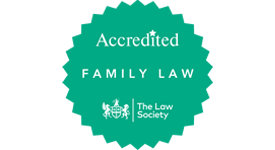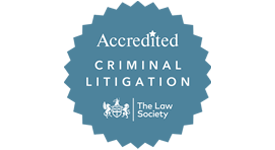Road traffic offences are the most common reason people who have never had experience in the criminal law system find themselves in front of a Magistrate or a judge. Being charged with a motoring offence is a stressful, scary process, especially if your livelihood depends on your ability to drive.
If you have been charged with a driving offence, we will advise and represent you from the beginning; providing you with support at the police station to working alongside a barrister if you have been charged with a serious offence and are facing a jury trial.
We have vast experience in providing defences for all types of road traffic offences including:
- drink driving
- death by dangerous driving and dangerous driving
- death by careless driving and careless driving (driving without due care and attention)
- speeding offences
- driving without insurance
- driving whilst disqualified
- failing to stop and/or report an accident
Our criminal law defence team will provide advice and representation from the very beginning of your contact with the criminal justice system. We provide police station representation 24 hours a day, 365 days a year. Many of our solicitors are multi-lingual and if they are not fluent in your first language (should it not be English), they will swiftly arrange for an interpreter.
As solicitors accredited in criminal law by the Law Society of England and Wales, we can provide you with the advice and representation you need to ensure you have a strong defence.
Please contact us on 0207 281 1001 or at enquiries@faradayssolicitors.co.uk.
Can I lose my licence for speeding?
You can be disqualified from driving if you build up 12 or more penalty points within three years. Being caught speeding carries a minimum penalty of a £100 fine and three penalty points. However, a maximum of six penalty points can be imposed for speeding, meaning it does not take much to clock up 12 points (being caught using a hand-held phone leads to six points and a fine of £200).
We understand the serious financial and reputational consequences of losing your driver’s licence. Our road traffic offences solicitors will advise you on any defences available, such as duress or necessity or, in the case of a speed camera fine, it was not you driving the car at the time the camera caught the vehicle at excessive speed.
What is meant by band A, B and C in relation to speeding offences?
If you are caught speeding, four things may happen:
- you may be given a verbal warning by a police officer (if you are stopped in person)
- you may be asked to attend a speed awareness course (which you have to fund)
- a police officer may issue a Fixed Penalty Notice which is £100 and three penalty points
- you may be prosecuted
The level of fine and the number of penalty points you receive will depend on the seriousness of your speed. Speeding offences commonly fall into Bands A to C. There are three additional bands of D to F which are reserved for the most serious offences.
If you are caught driving between 31 and 40mph, you will be fined at band A level, equalling 25-50% of your weekly income. If you are recorded doing 41-50mph, the fine will be set at band B, 75-125% of your income. If caught speeding in band C, at 52mph plus in a 30mph zone, expect to pay a fine as high as 175% of your weekly income.
Extremely serious speeding offences can see offenders placed in bands D to F, where the fine can be up to 700% of your weekly income (although the fine level is capped at £1,000 or £2,500 if you were caught speeding on a motorway).
Factors which may see you pushed up into bands D to F include prior convictions, poor weather conditions, towing a caravan or trailer, and speeding in risky locations (such as an area where there are lots of pedestrians).
What are the available defences for drink driving?
To convict a person of drink driving, the prosecution must prove, beyond reasonable doubt (or so the court is certain as to be sure), that the defendant was:
- driving,
- on a road or other public place,
- a motor vehicle,
- after consuming so much alcohol that the amount in their breath, blood or urine,
- exceeded the prescribed limits
Given the potential of a long period of disqualification (between 12 to 36 months), which can drastically affect your career, and ability to earn an income and reputation, it is imperative to identify a defence. Defences to drink driving can include:
- you were not driving or attempting to drive
- you were not operating the vehicle on a road or in a public place
- you were forced to drive due to duress or necessity
- the excess alcohol in your body was consumed after you had stopped driving, but before the breath, blood or urine sample was taken (known as the ‘hip-flask’ defence)
- the police made procedural errors when taking specimens or providing warnings
Our experienced motor vehicle offence solicitors will carefully review the circumstances of the prosecution’s case and seek out any matters which can be used to create a robust defence in your favour.
Can I go to prison for careless driving (driving without due care and attention)?
Causing death by careless driving is triable as either an indictable or summary offence[PM1] . If convicted on inditement, the maximum penalty is five years’ imprisonment and/or an unlimited fine. A summary conviction can result in six months’ imprisonment and/or an unlimited fine.
In many cases, the police will issue a Fixed Penalty Notice which is a £100 fine and three penalty points. You may be offered a driver education course as an alternative. If the offence is more serious, you may be summoned to court where you could face a fine of nine penalty points and £5,000 or disqualified from driving altogether.
To find out more about our criminal law services or police station representation, please phone our office on 0207 281 1001. You can also email us at enquiries@faradayssolicitors.co.uk.




